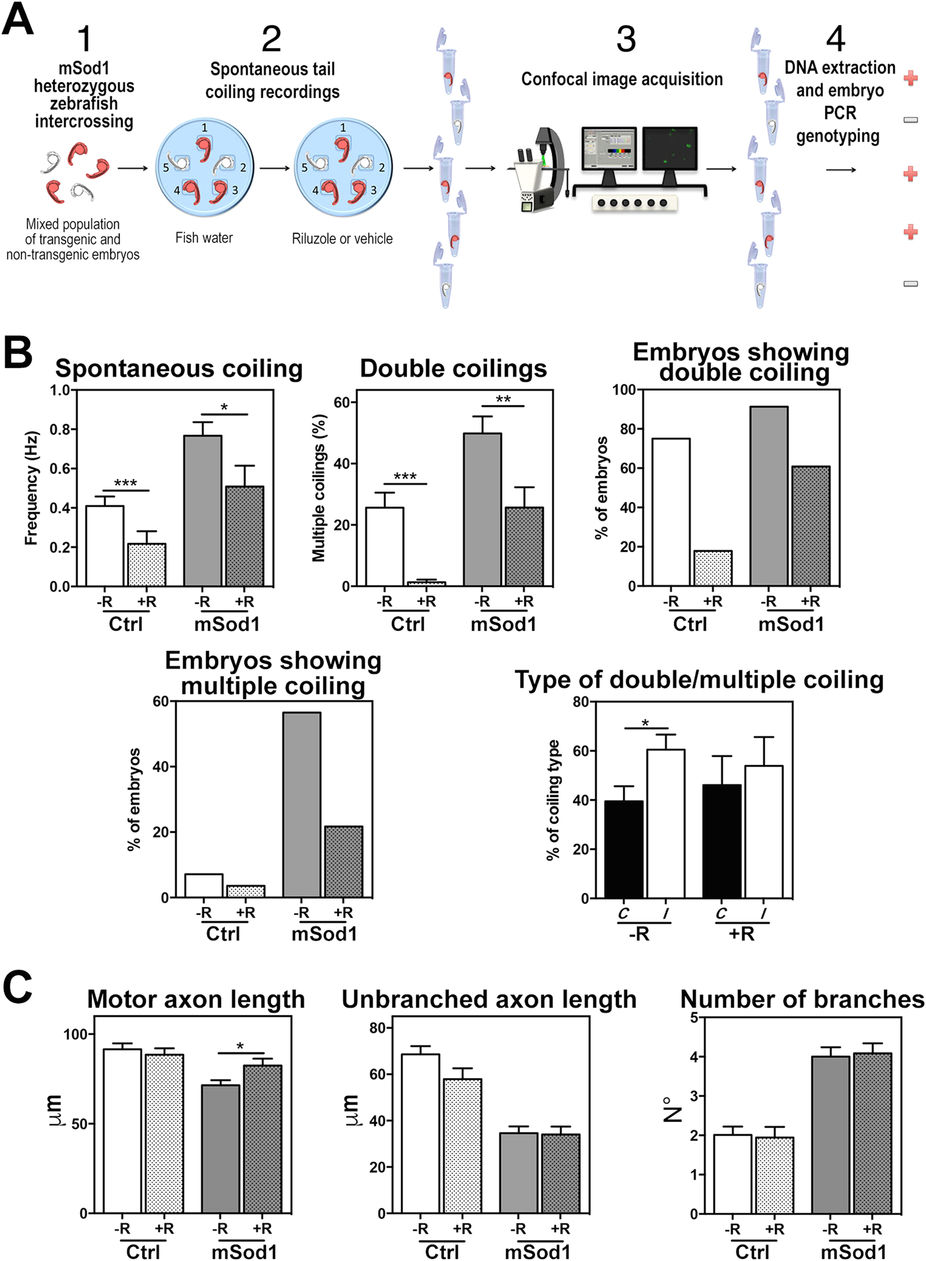Fig. 7
Riluzole treatment reverts the motor phenotype and normalizes motor axon length in mSod1 embryos.
(A) Protocol used to correlate embryonic behavior (20?hpf) and spinal nerve morphology (24?hpf). Transgenic and non-transgenic embryos from heterozygous mSod1 adults (1) were placed in a petri dish, and spontaneous tail coiling was recorded with (+R) and without riluzole (?R) (2). The embryos were then stained for immunofluorescence, visualized by means of confocal microscopy (3), and PCR-genotyped in order to distinguish the transgenic and control fish (4). (B) Riluzole significantly reduced the frequency of spontaneous tail coiling, the percentage of double coiling, and the percentage of double and multiple coiling in both genotypes (Table 4), bringing the frequency of spontaneous coilings, the percentage of multiple tail coilings and the type of multiple tail coilings (the relative percentage of contralateral [C] and ipsilateral [I] tail bends [39.5% C and 60.5% I before and 46.13% C and 53.87% I after riluzole treatment]) to levels comparable with those of the control (Ctrl) embryos before riluzole administration. The columns in each graph indicate the mean value?±?SEM of the indicated parameter in 28 Ctrl and 23 mSod1 embryos before and after riluzole treatment. (C) Riluzole treatment did not affect motor axon length (91.5?±?3.3??m before and 88.5?±?3.6??m after), unbranched axon length (68.6?±?3.6??m before and 57.9?±?4.7??m after) or the number of branches (2.0?±?0.2 before and 1.9?±?0.3 after) in the 12?16th somite trunk region of Ctrl embryos, but significantly increased motor axon length (71.44?±?2.9??m before and 82.4?±?3.8??m after) without affecting unbranched axon length (34.6?±?2.9??m before and 34.04?±?3.4??m after) or the number of branches (4.0?±?0.2 before and 4.1?±?0.3 after) in the same region of mSod1 embryos. The columns in each graph indicate the mean value?±?SEM of the indicated parameter in 11 Ctrl and 22 mSod1 embryos treated with riluzole, and respectively 28 and 33 untreated embryos. The measures were statistically analyzed using an unpaired Student t-test (see Table 4).
Image
Figure Caption
Figure Data
Acknowledgments
This image is the copyrighted work of the attributed author or publisher, and
ZFIN has permission only to display this image to its users.
Additional permissions should be obtained from the applicable author or publisher of the image.
Full text @ Sci. Rep.

